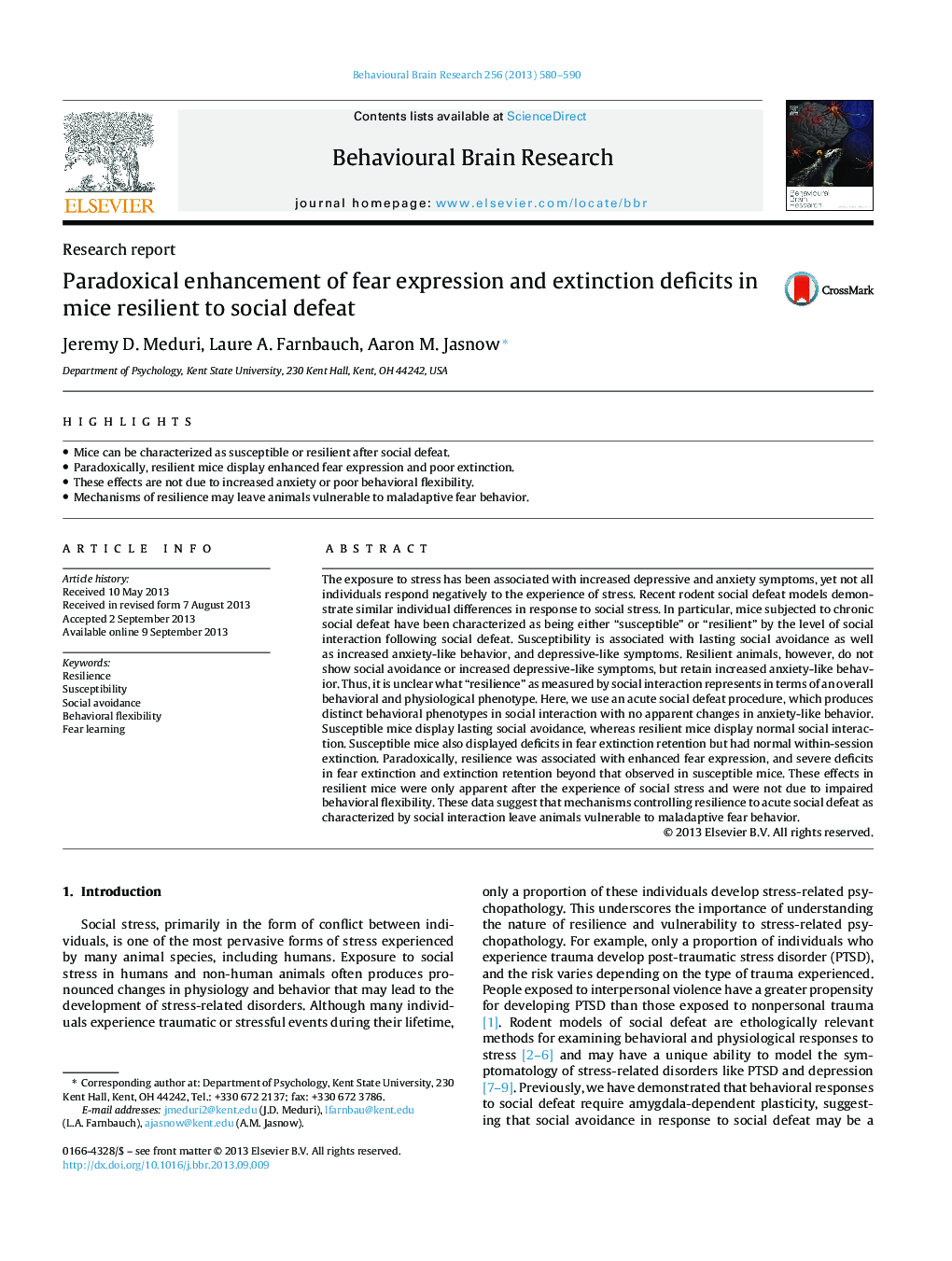| Article ID | Journal | Published Year | Pages | File Type |
|---|---|---|---|---|
| 6258883 | Behavioural Brain Research | 2013 | 11 Pages |
â¢Mice can be characterized as susceptible or resilient after social defeat.â¢Paradoxically, resilient mice display enhanced fear expression and poor extinction.â¢These effects are not due to increased anxiety or poor behavioral flexibility.â¢Mechanisms of resilience may leave animals vulnerable to maladaptive fear behavior.
The exposure to stress has been associated with increased depressive and anxiety symptoms, yet not all individuals respond negatively to the experience of stress. Recent rodent social defeat models demonstrate similar individual differences in response to social stress. In particular, mice subjected to chronic social defeat have been characterized as being either “susceptible” or “resilient” by the level of social interaction following social defeat. Susceptibility is associated with lasting social avoidance as well as increased anxiety-like behavior, and depressive-like symptoms. Resilient animals, however, do not show social avoidance or increased depressive-like symptoms, but retain increased anxiety-like behavior. Thus, it is unclear what “resilience” as measured by social interaction represents in terms of an overall behavioral and physiological phenotype. Here, we use an acute social defeat procedure, which produces distinct behavioral phenotypes in social interaction with no apparent changes in anxiety-like behavior. Susceptible mice display lasting social avoidance, whereas resilient mice display normal social interaction. Susceptible mice also displayed deficits in fear extinction retention but had normal within-session extinction. Paradoxically, resilience was associated with enhanced fear expression, and severe deficits in fear extinction and extinction retention beyond that observed in susceptible mice. These effects in resilient mice were only apparent after the experience of social stress and were not due to impaired behavioral flexibility. These data suggest that mechanisms controlling resilience to acute social defeat as characterized by social interaction leave animals vulnerable to maladaptive fear behavior.
